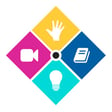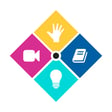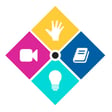Become a Creator today!Start creating today - Share your story with the world!
Start for free
00:00:00
00:00:01

Essential Tips
Welcome to the final episode of our series! In this episode, Miranda and Shannon share helpful tips for treating hand patients and thriving in the therapy setting. They cover essential strategies for effective patient care.
Recommended
Transcript
Introduction to Hand Therapy Academy
00:00:06
mmateri
Hi, I'm Miranda Materi.
00:00:07
Shannon Skowbo
And I'm Shannon Scalbo. I almost said Josh McDonald.
00:00:13
Shannon Skowbo
I'm Shannon Scalbo and we are Hand Therapy Academy.
00:00:16
mmateri
All right. Welcome Shannon.
00:00:18
Shannon Skowbo
Thank
Career Advice for New Therapists
00:00:19
mmateri
Wanna be Josh? ah that's my How are you?
00:00:19
Shannon Skowbo
you.
00:00:20
Shannon Skowbo
Thank you.
00:00:24
Shannon Skowbo
I'm wonderful. How are you?
00:00:26
mmateri
Great. I am ready for your questions of the week.
00:00:30
Shannon Skowbo
Okay. My question is, um what would you do if you were in my shoes right now? And I mean that in like, uh, like you are now, you know, so many years into your career, like if you were now knowing all that, you know, now, if you were back in your new grad shoes going off to work on your own for the first time, um, what, what would you do?
Embracing Inexperience & Lifelong Learning
00:00:56
mmateri
What would I do? Okay, that's a good question. What would I do? And also this is advice because I kind of know you from having you as a level two student and as a um capstone student. So I think knowing you, I would say, don't, and this could apply to probably a lot of new grads, don't be too hard on yourself. You are not going to know everything and you don't need to know everything. I think a lot of times you think, well, gosh, I never, you get out and you're like, I never learned that in school. And you're just starting to realize how much you don't know, right? I think all new grads are like, Oh my gosh, I hardly know anything, even though I just spent the last three years in graduate school and I, I pass my boards and I think I know, but you don't. And I think just,
00:01:40
mmateri
Really making sure that you're not being too hard on yourself for not knowing it's okay not to know and um It's okay.
Importance of Mentorship and Networking
00:01:48
mmateri
Just think about it as a learning process and this is a journey So that's one thing and then I would also encourage a lot of networking like I think it's really exciting when you come out of the field and you're starting I when I started I was always attending like different hand therapy groups where I I would meet different people that were interested in hand therapy and learning from them.
00:01:55
Shannon Skowbo
you
00:02:10
mmateri
And also it was nice to have people that were in the same place as I was. So um they could really relate to me, right? Like I can't, I mean, I can kind of remember when I'm that long ago, but not that well. Like I can't relate to those feelings as much as I could when I was really living it. So I would encourage you to mentor and find people that are maybe learning hand therapy very as well and in a similar timeframe. Um, so mentorship, networking, um, going to conferences, like it's just fun, right? It's fun to be out and fresh in the field.
First Conference Experiences
00:02:45
mmateri
And so I think going to conferences, meeting all those people and then like how much you learn is at a conference as a new grad is exponential, right? You're going to pick up so many new things. And I think the first one I went to was ASHT and
00:03:00
mmateri
thinking like wow I can't believe I never knew a lot of most of this stuff even though I'd been in the field for almost a year.
00:03:07
Shannon Skowbo
Right. Yeah. Well, and I think, as you know, my my first conference in the hand therapy world was AAHS, which is the hand surgery conference. And so especially like I wasn't even graduated yet. um And that felt so wildly outside of um anything I knew. Like it was, hard I was hard just even keeping up with like the acronyms, right? That we use in hand therapy, even though I think I'm a lot better at that now. It was like, I could only take away so much. Um, and I think that, that kind of like leads into my next question of like, I think that's a, you know, that's an outlier of like how much you need to know.
Learning from Patients vs. Structured Study
00:03:45
Shannon Skowbo
But I think in general, like in hand therapy, it sometimes it feels, um, like where do you start? I guess. Um, and I know like, you know, basic anatomy and stuff like that, but it's like, what is like, what have you found to be like the most beneficial and like in your learning of hand therapy?
00:04:03
mmateri
I think just doing ah for me, it was when I would have a patient come in with that diagnosis. Like I wouldn't be like, Oh, this week I'm going to study distal radius fractures. Next week I'm going to study the elbow. Like I didn't think of it like that. Like it wasn't like a regimented study by the systems or the. the body part, but it was like, oh, today, tomorrow I see I'm having an evaluation for scleroderma. What is scleroderma? I've never even heard of it, right? Like, I feel like as a new grad, you're like, gosh, I've never even heard of that before. So then I would go and look up the information before I saw them and then, um you know, ask my peers questions and things like that after the evaluation. So I think a great way of learning the information is just doing it case by case, patient by patient. Otherwise, I think it could get really overwhelming.
00:04:49
Shannon Skowbo
Definitely. Definitely.
00:04:50
mmateri
Yes.
00:04:51
Shannon Skowbo
That's why I think like my my favorite, or how I've most best navigated that is, um and i I don't think there's necessarily stupid questions, but i I definitely tend to ask the stupid questions, I think, like the most basic of basic, where it's like, but what do you mean? like what What does that mean? and And why do we think that about that? um Because sometimes like just it gives you a better um
Building Communication through Questions
00:05:18
Shannon Skowbo
foundation. I find that when I like know the foundation of things a little better then um I can like better explain it to patients in like a layman's way and that makes me feel like a better therapist I guess.
00:05:32
mmateri
Yeah, definitely. I think because like with you, I think, well, what I noticed when you were a student was like, you always wanted to know the why the why and like know it in like a really deep level, which I think is great. I think that's better for when you take the CHT and those tests because you can pull up the answer if you understand it. um So I think that's great understanding the why.
00:05:55
Shannon Skowbo
Right. And sometimes I think that it's also, it's a strength and it's a growth, it's a growth point too, because I think sometimes it's okay to just like, let's just accept that for what it is. Because I think that also is a thing that leads to burnout too, right? Is like trying to get to the nitty gritty of every single thing, piece of information that you come across. um And sometimes it's just a waste of time too, right?
00:06:14
mmateri
Yeah.
00:06:17
mmateri
Well, yeah, but I think like to just knowing that there's there's layers to learning and levels to learning and just like I think with you, you're like, Oh, gosh, if you if you're seeing a patient with scleroderma, you want to know every single detail and understand it in like this deep complex way.
00:06:18
Shannon Skowbo
um
00:06:33
mmateri
And that's really not always doable, right?
Patience in Professional Growth
00:06:36
mmateri
So this is your first scleroderma patient, I'm going to get the basics down.
00:06:37
Shannon Skowbo
Right.
00:06:39
mmateri
Hey, I got another one coming in, I'm gonna like each time you see that patient or each time you get that diagnosis, you'll deepen your learning. So I think just having some grace with yourself and some kindness with yourself to to not always have to know everything in some complex detail like you want to.
00:06:58
Shannon Skowbo
Right. Right. And that like the, learning the learning will come with time and it doesn't have to happen now. It doesn't all have to happen now, right?
00:07:05
mmateri
Yes. You're not going to be a knight. And that's why what's so great about the CHT, right? You can't even take the test for three years. It used to be five years. No one wants you to have it right now. it there It's designed to be things that you learn over time.
00:07:23
Shannon Skowbo
Definitely. even though i Even though I wish I could just study this for the next six months and take it now.
00:07:29
mmateri
Yeah, that's that would defeat the purpose, right?
00:07:33
Shannon Skowbo
Right? Do you think it's like ever too early to start studying for that?
00:07:34
mmateri
that
00:07:37
Shannon Skowbo
Or do you just think like naturally working in the hand therapy clinic like you are studying for the CHT in like some capacity, right?
00:07:43
mmateri
Yeah, I think working in a hand therapy a cat or a hands working and i hand therapy working in the hand therapy clinic and looking up stuff with your patients is the best learning.
Interactive Learning in Hand Therapy
00:07:52
mmateri
And then as it gets closer, start honing in on those things that you know may not be as applicable to patient patient care, but are applicable to the test. Um, but I don't think it's ever too early to study. I think that's just an indirect way of studying. And then one thing I love to tell, um, therapists when they're learning is make sure, like you said, you teach it back to your patient. So as we know, um, anatomy is the foundation to hand therapy. So I would go back and teach them, I would even like pull up, um, anatomy TV, which is an app that's available or that you have access to and show them the anatomy. Like this is where it attaches. Like when we were talking about the biceps attaches to the radial tuberosity. And that's why.
00:08:30
mmateri
It does forearm supination, right? Cause in explaining that to the patients can be really, really your way of like really understanding and learning it. Like you, you read it the night before, but then the next day you're going to go explain it to them. So then you really learn it too. And I think that can be helpful.
00:08:46
Shannon Skowbo
Right. Right. Yeah.
The Evolving Nature of Knowledge
00:08:48
mmateri
Yeah.
00:08:48
Shannon Skowbo
No, definitely the teacher. I'm just, I'm laughing because of the biceps example. As, as a new grad, I just, as I just learned a couple of weeks ago that the biceps main role is supination. But I feel like in school, I always thought it was elbow flexion. And so sometimes it's just, it's, asking it's asking the basics. It's asking the dumb questions. It really is.
00:09:09
mmateri
Yeah. And yeah, figuring stuff out is in you the something you're going to be 10 years in and you're going to be like, wow, how did I, I never knew that there's going to be stuff like that.
00:09:16
Shannon Skowbo
Right.
00:09:17
mmateri
There was your career, but I think that's what makes hand therapy great.
00:09:20
Shannon Skowbo
Right, exactly.
00:09:22
mmateri
Yeah. Okay.
Closing Thoughts & Future Invitations
00:09:23
mmateri
Our time is winding down. Thank you so much for coming on today. And it was great having you. And, um, if we do this again, you'll be one of the first we call.
00:09:33
Shannon Skowbo
you


